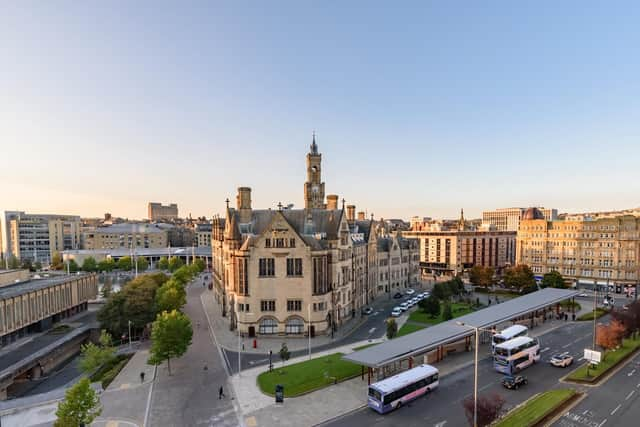Why West Yorkshire's elected metro mayor will have to make use of their 'soft power' to make a difference after May 6
Highlighting the fact that Leeds and Manchester had economies bigger than Wales, but no single leader to speak for them, he proposed that new city region mayors should have similar powers to those enjoyed by the mayor of London - then one Boris Johnson.
West Yorkshire only has a few weeks to wait for this blueprint to become a reality as its 2.3 million population goes to the polls on May 6 to choose its first directly-elected metro mayor.
Advertisement
Hide AdAdvertisement
Hide AdBut once he or she has their feet under the table at the combined authority's offices in central Leeds, the reality is that they will lack the powers to bend the local political system and economy to their will single-handedly.


Despite the rhetoric about empowering city regions to shape their own destinies, metro mayors have relatively few powers and levers to pull. To succeed they will need the backing of other local leaders, a good relationship with Whitehall and to feel the benefit of political winds blowing in the right direction.
That's not to say that metro mayors have no influence, as Dan Jarvis in South Yorkshire and Ben Houchen in the Tees Valley have made themselves into significant political figures, arguably with more clout than most MPs.
But their greatest strength is so-called 'soft power', the ability to bring people together and call for change with a mandate that comes from being elected by a large region of the country.
Advertisement
Hide AdAdvertisement
Hide AdThis allows mayors to get involved in areas over which their mayoral combined authorities technically have no jurisdiction, as Andy Burnham did in bringing homelessness to the fore in Greater Manchester.
The devolution deal signed by West Yorkshire's five council leaders last March includes control of a £38m per year 'gainshare' fund for the next three decades as well as access to other funding streams previously held under lock and key by central government.
Within a few months of taking power the mayor will have control of the £63m adult education budget, meaning they can decide where to prioritise funding to help people aged 19 and over into jobs, an apprenticeship, traineeship, or other further learning.
However the mayor does not enjoy unilateral control over these powers. A glance at the details of how West Yorkshire's new mayoral authority will work shows the extent to which they have to get council leaders to agree to their agenda.
Advertisement
Hide AdAdvertisement
Hide AdThere are relatively few powers where the mayor can act by themselves without getting the consent of the combined authority members, made up of West Yorkshire's five local council leaders and three other councillors for political balance.
On others, such as the strategic direction of the adult education budget, decisions will be made by a majority of the combined authority members and the mayor does not have a casting vote.
This political reality plays out differently around the country. In South Yorkshire, Dan Jarvis rarely puts forward measures which don't have the support of his fellow Labour council leaders in Barnsley, Doncaster, Rotherham and Sheffield.
In Greater Manchester all but one of the local council leaders are Labour, meaning internal party politics (usually conducted behind closed doors) often dictates what Andy Burnham can get done.
Advertisement
Hide AdAdvertisement
Hide AdAnd in the West Midlands, former John Lewis boss Andy Street is able to co-exist with Labour-run councils as Conservative metro mayor by virtue of being seen as less party political.
Equally metro mayors rely on a good relationship with the government of the day. Few would argue with a straight face that Jamie Driscoll, the socialist North of Tyne Labour mayor, has benefitted from devolution to the same extent as Conservative Ben Houchen, who in the just the last few months has seen the Government bestow a new Treasury HQ and a freeport on his patch.
And while Andy Burnham made waves last autumn by taking a stand against the Government's offer of coronavirus support, the end result - at least for a while - was that Greater Manchester ended up empty-handed. Meanwhile Dan Jarvis, who struck a more emollient tone in his dealings with Ministers, got more than £40m.
Despite some progress on the devolution agenda, an imbalance remains between the powers wielded in the regions and in Westminster. This may change when the Government's long-awaited devolution White Paper is published and reveals their intentions in this area.
Advertisement
Hide AdAdvertisement
Hide AdBut the situation is illustrated perfectly by the fact that Dan Jarvis remains an MP with the aim of using the dual role to wield more influence over Ministers.
The Barnsley MP has pledged to concentrate on just one of the roles going forward and the decision he takes is likely to give an indication about whether he believes metro mayors have the ability to make the changes so desperately needed in his, and other, areas of Yorkshire.